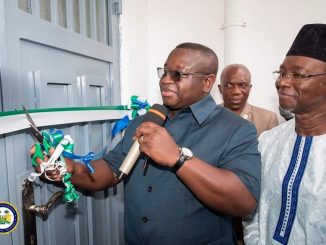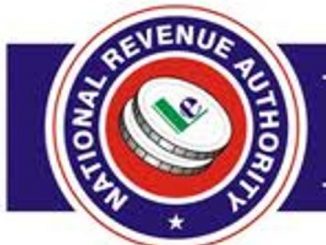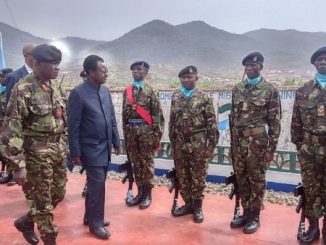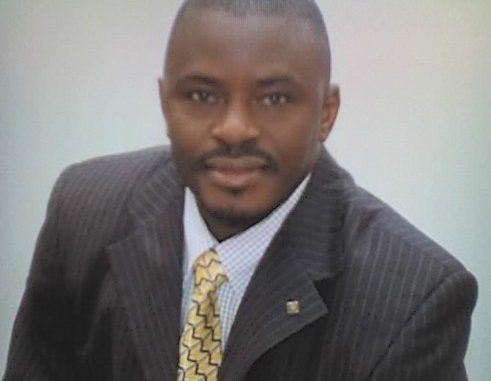
By Ibrahim Sourie Mansaray
Delaware,USA
In the last three years, African countries have registered an overall decline in the quality of political participation and the rule of law.
The United States, which has traditionally been a major influence in promoting democracy in Africa, has had a seemingly hands-off approach since President Donald Trump came to office in 2017. The fallacy that United States is the Father of Democracy in the world is dead or dying since Trump came to power. Had Trump been an African President, his country would have been a monarch with his dictatorial tendencies. To the Conservative political pundit, Trump is an epitome of some African leaders whose quest to stay in power is unshakeable.
The notion that America is good at promoting democracy, free and fair elections, political and civil rights seems to be going with the winds. Imagine an American president doubting his own political system or worse off, not even committing to accepting the outcome of the results. Ironically, not a single African president has lambasted Donald Trump for such undemocratic principles. Had Trump being an African president uttering statements like doubting your own intelligence agency reports, doubting the credibility of mail in ballots voting and even insulting some African leaders as …… hole, the whole western world would have been issuing bundles of press releases denigrating the credentials of such leaders. If it is happening in the West, it is business as usual, but in Africa, it becomes a problem.
If African leaders see Trump, who seems very happy to shake hands with autocrats, it gives them the signal that they can manipulate elections and not face consequences.
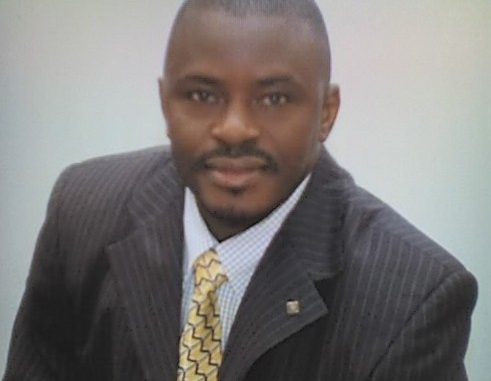
Uganda’s President Yoweri Museveni, who plans to run for a sixth term in 2021, has been notably effusive in his praise of the American president, once declaring, “I love Trump,” who he describes as the best president the US has had. Few years ago, Lauren Gbagbo, former president of Ivory Coast was kicked out of power and subsequently shipped to the International Criminal Court, the crime? He wanted to twist the constitution and prolong himself in power. The country was plunged into a civil war and nearly tore the country into pieces. Today, the incumbent, Alassane Ouattara has just been nominated to run for a Third term, a crime he accused his predecessor of doing.
Guinea, a close door neighbor of Sierra Leone, just nominated an 82 year old president to run for the next presidential election. What a shame! Imagine, Alpha Conde was imprisoned by the late Lansana Conte for preaching democracy. Instead of strengthening democracy by conducting transparent elections, he is appearing to be the Godfather of Guinea politics. The list is endless in Africa… so where is this democracy that people tend to preach about? Is it that African democracy should have different standards? This year, some 15 countries are set to hold elections at different levels, but the credibility of these polls is likely to again conjure up questions about whether democracy is working for Africa.
Few weeks ago, a street boy in Lagos blamed bad leadership for Nigeria’s socio-economic problems. He called for a mass burial of the country’s political elite, which in his opinion, would help combat corruption and unlock the country’s potential. His view echoes the inner and hidden sentiments many people living in African are hidden in many African countries have about their leaders. The reasons for this are easily found. Most African leaders have done little to improve the welfare of their people, who are very poor, while they, and their cronies, live in opulence.
The menace goes all through the political chain to elected and appointed public officers where party financiers and godfathers dictate who holds what public office without regard for competence and internal democracy. Corruption seems to be prevalent in the continent with little or lack of political will to curb it.
Africa is home to despots and life time presidents who either abuse their power or allow abuses to be perpetrated with impunity. The aspect of checks and balances are weak and alternative views are discarded, culminating in low accountability which further deteriorates leadership and reinforces corruption.
In Sierra Leone, on a normal day and time, moving a generator from the east to west is an ordinary government machinery. It raises no eyebrow and being considered as the work of the government in carrying out its responsibilities. The recent brouhaha surrounding the movement of the generator from Makeni to Lungi that led to the death of civilians has raised the unease between the ruling Sierra Leone People’s Party and the main opposition, All Peoples Congress. At the core of their internal politics, leadership problem is opaque and suspicious. As it stands, even if the ruling party brings two generators to Makeni, there will still be some people who would become suspicious of government’s generosity. On the other side, the core APC members always consider SLPP as a party bent on decimating APC.. The divide is wide and leaders of the two main political parties are not helping either. The country’s politics needs cleaning and the leaders should think of the masses as the beneficiary of good leadership.
In a recent AYV Sunday Talk Show, local Non-Governmental Organization partners described the rift between the North and South as the key problem affecting the country. An Executive Director of a local NGO, Institute For Governance Reform, Andrew Lavalie, described the divide as the core problem besetting the political parties. Disappointingly, this scourge has gripped even university students coming from these regions as each considers the other as antagonist. One would expect democracy and its associated principles to produce visionary and effective leaders, but this rarely the case in the country.
In essence, there may be new faces in government and the leadership of the Sierra Leone Peoples Party, and people expect the status quo to change. The big question is, when? Maybe, very soon.
May God bless Africa and Sierra Leone in particular

